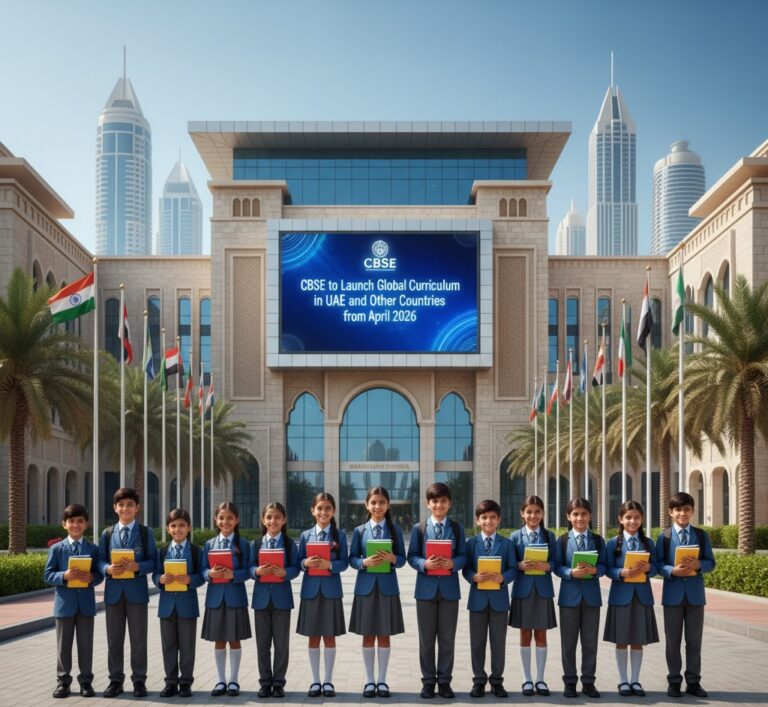The Central Board of Secondary Education (CBSE) plans to set up its new Global Curriculum in April 2026, marking a critical milestone in its international development. Initially planned at CBSE-affiliated schools in the UAE, the project aims to integrate worldwide learning standards with Indian educational principles. The ceremony comes after discussions during the 31st Sahodaya School Complex Conference in Dubai, where over 800 school leaders were present.
Highlights of the CBSE Global Curriculum for International Schools
1.Curriculum Overview:
- Global Standards: Aligns Indian education with international requirements while maintaining Indian cultural values.
- International Reach: It is available to CBSE schools abroad as well as Indian schools who choose to implement it.
2.Engagement with the GCC regulators:
- Consultation with GCC Countries: CBSE has addressed the curriculum with regulators in the UAE, Qatar, Bahrain, and Kuwait.
- Global Recognition: CBSE certifications will be accepted around the world to ensure high-quality education.
3.Building on CBSE-I:
Improvement over CBSE-i: The new curriculum builds on the CBSE-i program, which ended in 2017, by promoting interdisciplinary learning and critical thinking.
Focus on Global Education and Indian Values.
Educational Access and Inclusion:
Queen’s University and other international education providers have complimented the CBSE’s efforts to provide affordable, high-quality education to all students, particularly those attending international schools.
Strategy growth:
The Global Curriculum is part of CBSE’s strategy to grow into international markets, allowing Indian students to receive global education without leaving the country.
How will this impact CBSE schools in the UAE?
- CBSE schools in the UAE will begin using the Global Curriculum in April 2026, with the goal of better preparing students for a globalized future.
- The curriculum will focus on leadership, digital transformation, and entrepreneurship, ensuring that students have the abilities needed to succeed in an increasingly competitive global landscape.
Conclusion: A Step Towards Global Education for CBSE Schools.
The introduction of the CBSE Global Curriculum is a big step forward in the internationalization of Indian education. By combining India’s educational ethos with global standards, CBSE promotes its schools as international education leaders. This effort not only provides students with a globally recognized education, but it also prepares them for future leadership positions.

